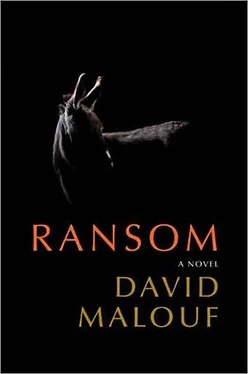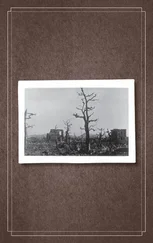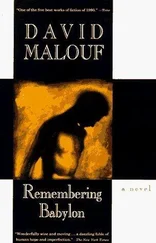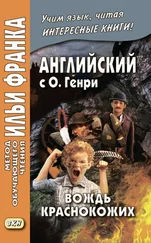‘If all this touches you so deeply, Patroclus,’ he had flashed out, ‘you go and save the Greeks.’
‘I will, since the great Achilles won’t do it,’ Patroclus hit back. And hand on sword he sprang to his feet. There were tears in his eyes.
They had stood then, appalled, both, by what had been said. Achilles was trembling; too proud to admit, even to this man who was half himself, that he might be in the wrong, but heartsick, stricken. When had they last quarrelled like this, he and Patroclus? When had he last seen Patroclus weep? The tears, he knew, were for him, he felt the hotness of them in his own throat. Even more for this unhappy rift between them.
‘Patroclus,’ he had whispered, and turned away.
‘Achilles, let me go,’ Patroclus begged, whispering himself now, though there were no others by. ‘Let me go and take the Myrmidons with me. Lend me your armour. When the Trojans see your helmet and shield they will think it is Achilles who has returned to the field, and draw back and give our friends a breathing space. Achilles, I beg you.’
Filled with misgiving but suddenly drained of all will, Achilles had found himself assenting. When Patroclus, after so many days of tension, in a burst of joyful reconcilement clasped him to his breast, he had been convinced for a moment that all might be as Patroclus suggested, and could be turned about and made good. And when Patroclus, armed but not yet helmeted, himself again though the armour was not his, stood smiling before him, he too had smiled, though the feeling he caught from his dear friend’s glowing freshness, the assurance and high spirits of the warrior armed for battle, did not last.
Alone in the hut again, feverish, drawn in upon himself, and with a heaviness like waking sleep upon him, he heard a shout go up from the assembled Greeks: his name — ‘Achilles!’ — then its echo from the Trojan lines, a hollow murmur like a rising wind.
Feeling hollow himself, as if his packed chest and limbs were without substance, he had got to his feet, and reeling a little, stepped outside to observe for himself what was under way.
Out there on the glittering plain, a figure dressed like him and moving as he did, resplendent in his harness, breastplate and greaves and holding aloft his studded shield, was standing alone between the lines. When the Greeks for a second time shouted his name, the figure turned in acknowledgement. His right arm jerked and hoisted aloft the flashing shield.
There was a rush, a great noise of raucous breath and clashing metal. Swords, heads, shoulders everywhere. ‘Patroclus!’ he had shouted, but silently, his cry snuffed out in the far-off spaces of his skull by the clangorous ringing of bronze against hammered bronze, as the helmet with the horsehair crest and nodding plume — his helmet, which every man at Troy, Greek and Trojan, recognised as his and knew him by — at a sudden swing as from nowhere (the gods again, their second thrust!) was struck from his head, and Patroclus, open-mouthed with astonishment, stepped back a pace, then staggered and went crashing.
He had wept for Patroclus. Wept without restraint. Sitting cross-legged on the ground, rocking back and forth in his anguish, pouring fistfuls of dust over his head.
Two days later, looking exactly as he had in life, the ghost of Patroclus had come to where he lay apart from the others, curled up like a child on the open beach on rounded stones that smelled of his mother, dry-damp seagrass. Over the long-drawn-out sobbing of the waves, Patroclus had begged him, in his old voice, tenderly, to cease calling so piteously upon him, to bury his body with all proper ceremony, but quickly, and to let his spirit go at last and make its way among the dead; and from that night on, Patroclus, for all his lying sleepless on his pallet, and watching, and waiting — though he restrains himself from calling — has not come back.
His bones now, the twelve long bones, the burnt-out brainpan, the handful of splintered fragments they had gathered from the ashes of his pyre, are in the wide-mouthed urn in the barrow Achilles has raised to his dear friend’s memory. Where in time his own will join them.
‘Just a little longer, Patroclus,’ he whispers. ‘Can you hear me? Soon, now. Soon.’
But first he had Patroclus’ killer to deal with, in a last encounter out there under the walls of Troy.
The armour Hector wore was the armour he had stripped from the body of Patroclus, Achilles’ own, which Hector wore now to mock him: the helmet with its horsehair crest and plumes, the bronze harness that hung from his shoulders, the greaves with their silver clasps at ankle and knee.
Confronting an enemy so armed, at close quarters, sword to sword at the end of an hour-long pursuit, dodging this way and that to anticipate or avoid the other’s thrusts, searching out, as he knew it from within, the one unprotected place in the corselet — at the gullet, where the collarbone yields to the soft flesh of the neck — was like trying to deceive or outguess his shadow, and aiming, beyond Hector, at himself. And Hector’s death when it came, in his armour, like watching for a second time the dreamlike enactment of his own.
He dodged and feinted, found the place, and grim-faced but secretly smiling eased the heavy weapon in.
Hector, eyes wide with disbelief, dropped his sword, reached out and closed his fist on Achilles’ own. With the hot sweat streaming from his brow, every muscle in his forearm knotted in a last act of defiance, he met Achilles’ gaze.
Achilles grunted, gave the sword another push. The whole weight of his body hung on the thrust.
Weightless himself. All the force of his brute presence gone now into the blade as he urged it in. There was a still, extended moment when they were joined, he and Hector, by three hand-spans of tempered bronze.
On his knees in the dust, Hector gazed up at him, his grip still locked on Achilles’ fist. And despite the death-wound he had received, in a spirit untouched by the old rancour, with an almost brotherly concern, he spoke to Achilles with the last of his breath; as men, both, for whom this moment was sacred; a meeting that from the beginning had been the clear goal of their lives and the final achievement of what they were. Man to man, but impersonally. So that Achilles, leaning close, felt a shiver go through him as he recognised the precise point where Hector’s own breath gave out and what replaced it was the voice of a god.
‘You will not long outlive me, Achilles,’ the voice whispered. Then, ‘The days are few now that you have to walk on the earth. To eat and exchange talk with your companions and enjoy the pleasures of women. Already, away there in your father’s house in Phthia, they are preparing to mourn.’
Achilles, leaning in over his sword to catch the last of Hector’s breath, felt the big body sway a moment, then stagger. Brought down by its own weight, blood gushing from the soft place between neck and clavicle, it detached itself from the blade and rolled slowly back.
Achilles too staggered a moment. He felt his soul change colour. Blood pooled at his feet, and though he continued to stand upright and triumphant in the sun, his spirit set off on its own downward path and approached the borders of an unknown region. For the length of a heartbeat it hesitated, then went on.
How long he passed in that twilit kingdom he would never know. It was another, more obdurate self that found its way back; and stood unmoved, unmoving, as his Myrmidons formed a cordon round Hector’s corpse and stripped it of its armour — harness, corselet, greaves — till all it was left with was the short tunic, now soiled with sweat and torn and drenched with blood, that was Hector’s own. Then he stood watching again as one by one, without passion, but also without pity, they plunged their swords into Hector’s unprotected flesh; with each blow shouting his name, so that all those watching from the walls of Troy would hear it, and Hector too, wherever he might be on his downward path into the underworld, would hear it and look mournfully back.
Читать дальше












